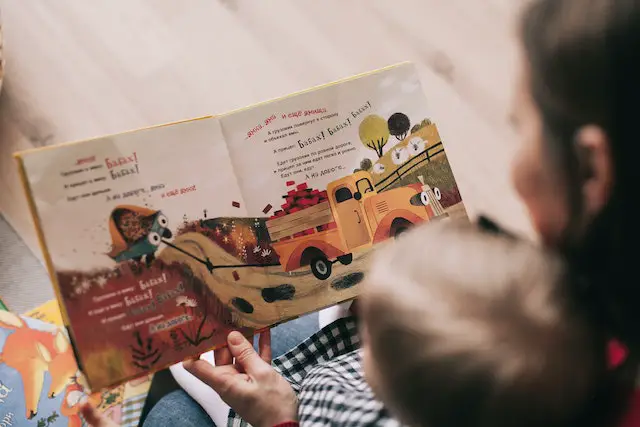Babysitters typically care for children on an as-needed basis, while childminders usually provide more regular care. Childminders also tend to be registered with a reputed organization like Ofsted and may have other qualifications as well, whereas babysitters do not usually need to be registered or qualified.
What is a babysitter?
(Photo by Lina Kivaka)

A babysitter is typically a teenager or young adult who is paid to watch children for a short period of time, usually in the evening. babysitters tend to work occasional or one-off jobs, they usually work in the family’s home, They are usually not required to have any formal training or qualifications.
What is a childminder?
(Photo by Tatiana Syrikova )

A childminder is someone who cares for children in their own home. They are usually self-employed and registered with Ofsted. They are usually required to have formal training and qualifications in early childhood education and care. Childminders can care for up to six children under eight, including their own. Childminders are usually more like full-time childcare providers.
Childminders are often able to offer flexible hours and can sometimes provide before and after school care, as well as childcare during school holidays. This can make them a good option for families who need regular childcare but whose schedules vary from week to week.
Babysitter Vs. Childminder – Key differences
The terms babysitter and childminder are often used interchangeably, but there are some key differences between the two:
Scope of responsibilities: Babysitters are typically responsible for the care of children for short periods of time, such as during a night out or for a few hours during the day. Childminders, on the other hand, are responsible for the care of children on a regular basis, often during working hours while parents are at work.
Qualifications and training: Babysitters generally don’t require any formal qualifications or training, and are often teenagers or young adults who are looking to earn some extra money. Childminders, on the other hand, are usually required to have completed certain qualifications and training in order to meet regulatory requirements.
Setting: Babysitters usually provide care in the child’s own home, while childminders may provide care in their own home or in a dedicated childminding facility.
Age range: Babysitters may be responsible for children of any age, while childminders often specialize in caring for young children, typically between the ages of 0 and 5.
Overall, while both babysitters and childminders provide care for children, the scope and nature of their responsibilities, qualifications and training, and setting may differ depending on the specific situation.
When to use a babysitter or childminder
The decision to use a babysitter or childminder can depend on a variety of factors, including your child’s age, your work schedule, and your personal preferences. Here are some general guidelines to consider:
Babysitter: Babysitters are usually best for short-term or occasional care, such as date nights or when you need to run errands during the day. Babysitters can provide one-on-one attention to your child and may be more flexible with their availability.
Childminder: Childminders are typically best for regular or ongoing care, such as full-time or part-time childcare. Childminders usually care for multiple children at once and may provide a more structured environment with educational activities and socialization opportunities.
Ultimately, the choice between a babysitter or childminder will depend on your individual needs and preferences. It’s a good idea to consider the level of care and attention your child needs, as well as your budget and availability. You may also want to consider your child’s age, as younger children may benefit more from one-on-one attention, while older children may enjoy the socialization and structure of a childminder.
How to find a trusted childminder
Finding a trusted childminder can be a daunting task, but here are some tips that may help:
- Start your search early: Finding a trusted childminder takes time, so start your search as early as possible. This will give you enough time to research and find the best childminder for your child.
- Look for recommendations: Ask friends, family members, and other parents for recommendations. You can also look online for reviews and testimonials from other parents.
- Check qualifications and experience: Look for a childminder who has the necessary qualifications and experience in caring for children. Check if they have relevant certifications or if they have taken any courses related to childcare.
- Schedule a meeting: Meet the childminder in person and discuss your expectations, requirements, and concerns. This will give you a chance to ask any questions you may have and get a feel for whether the childminder is a good fit for your child.
- Ask for references: Ask the childminder for references from other parents who have used their services. This will give you an idea of what their experience has been like and how satisfied they were with the childminder’s services.
- Conduct a background check: It’s important to conduct a background check to ensure that the childminder is trustworthy and has no criminal record. You can ask the childminder for a copy of their background check or do one yourself through a reputable agency.
- Trust your instincts: Ultimately, you should trust your instincts when choosing a childminder for your child. If something doesn’t feel right, it’s better to keep looking until you find someone you feel comfortable with.
How to find a trusted babysitter
- Ask for recommendations: Ask family members, friends, and other parents for recommendations. You can also ask your child’s school or daycare for a list of recommended babysitters.
- Look for online resources: Websites like Care.com, Sittercity, and UrbanSitter offer a database of qualified babysitters that you can search and review.
- Conduct interviews: Schedule an interview with potential babysitters. This will give you an opportunity to get to know them, ask questions, and discuss your expectations and concerns.
- Check references: Ask potential babysitters for references from other parents they have worked for. Contact the references and ask about their experiences with the babysitter.
- Conduct a background check: Consider conducting a background check to ensure that the babysitter is trustworthy and has no criminal record. You can do a background check yourself or use a reputable agency.
- Trust your instincts: Ultimately, you should trust your instincts when choosing a babysitter. If something doesn’t feel right, it’s better to keep looking until you find someone you feel comfortable with.
- Start with a trial run: Before hiring a babysitter for a longer period, consider starting with a trial run. This will give you an opportunity to see how they interact with your child and whether they are a good fit for your family.
What are the Advantages and disadvantages of childminders and babysitters?
Advantages of Childminders:
- Socialization: Childminders can provide children with socialization opportunities and the chance to interact with other children in a safe and supervised environment.
- Flexibility: Childminders may offer more flexibility in terms of scheduling and may be able to accommodate different hours or days of care.
- Education: Many childminders have a background in early childhood education and can provide educational activities and support for children.
- Home environment: Childminders often care for children in their own home, which can provide a more home-like environment that is comfortable for children.
Disadvantages of Childminders:
- Cost: Childminders can be more expensive than babysitters or other types of childcare, especially for full-time care.
- Availability: Childminders may have limited availability, and may not be able to accommodate last-minute requests for care.
- Distance: Depending on the location of the childminder, transportation may be required, which can add additional time and expense.
Advantages of Babysitters:
- Flexibility: Babysitters are often more flexible than other types of childcare providers, and may be available for evening or weekend care.
- Cost: Babysitters are often less expensive than other types of childcare, especially for short-term or occasional care.
- Convenience: Babysitters can come to your home, which can be convenient for busy parents who do not have time to transport their child to another location.
Disadvantages of Babysitters:
- Quality of care: Babysitters may have limited experience or training in childcare, which can affect the quality of care they provide.
- Safety concerns: Hiring a babysitter who is not well-known or trusted can create safety concerns for children and parents.
- Availability: Finding a reliable and available babysitter can be challenging, especially for last-minute requests or during busy times of the year.
The advantages and disadvantages of childminders and babysitters will depend on your individual needs and preferences. It’s important to carefully consider your options and choose the type of childcare that will provide the best care and support for your child.
Featured Image By – Vitolda Klein on Unsplash








